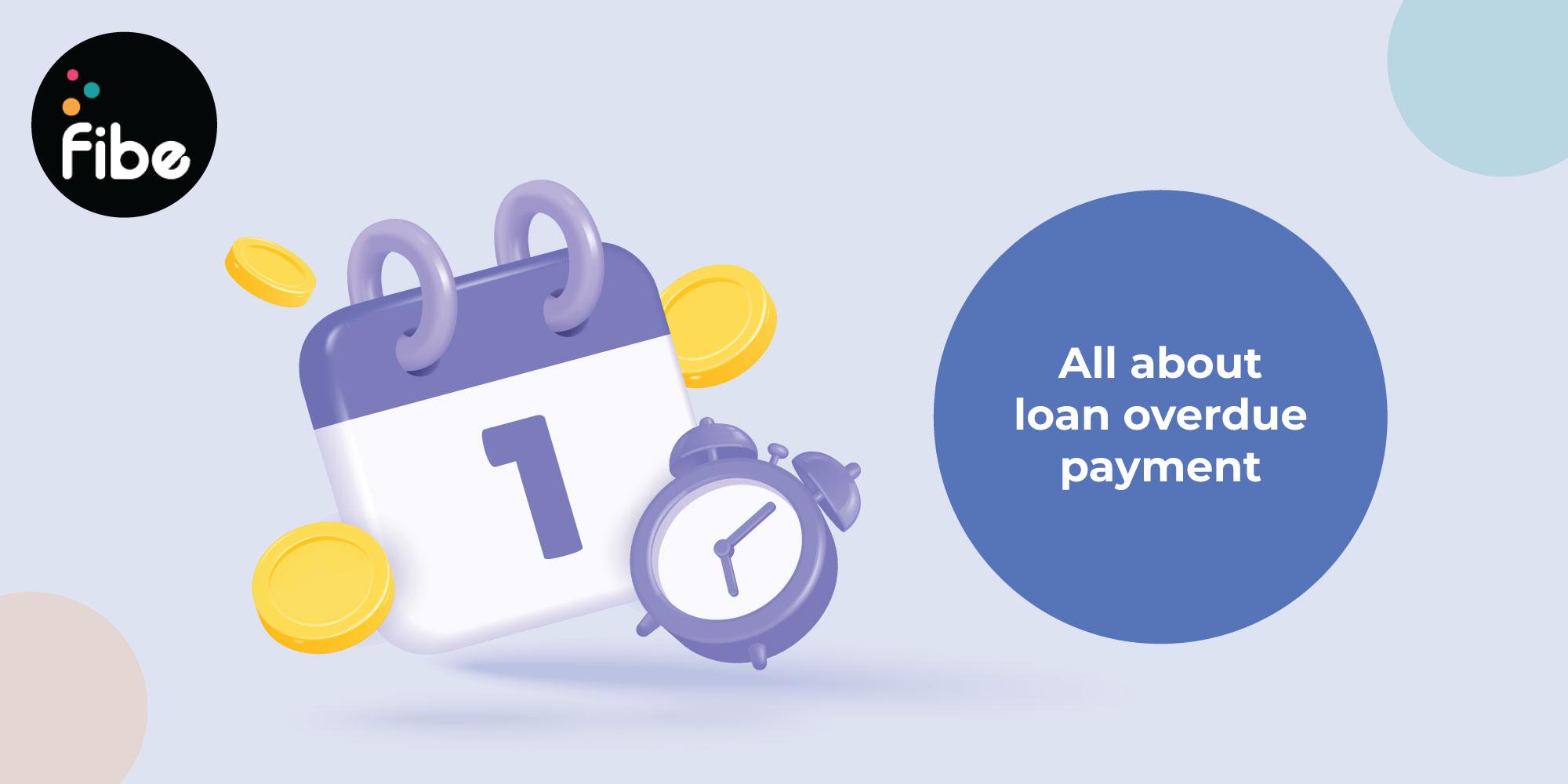- Home
- Blogs
- Personal Loan
- What Is Loan Overdue
Loan Overdue Payments: Its Importance & Tips to Clear It
Reviewed by: Fibe Research Team
- Updated on: 14 Apr 2025
Reviewed by: Fibe Research Team

Did you miss a few of your EMI payments? An overdue on a credit facility or loan refers to any situation when your loan instalment is not paid by the deadline. You may have missed the due date for many reasons, some of which may not be in your control.
Knowing the loan overdue meaning and understanding that it has short-term and long-term effects is crucial. This way, you can take care of your financial wellness in a more informed manner.
Overdue loans not only increase your financial burden but can also affect your financial health and creditworthiness. Keep these details in mind:
To better understand overdue loan payments, know how they differ from an outstanding payment.
| Parameters | Outstanding Payments | Overdue Payments |
|---|---|---|
| Definition | The remaining principal amount and interest left to be repaid | Unpaid EMIs that are past the due date |
| Payment is due in terms of | Upcoming EMIs | Past EMIs |
| Status | Not due | Exceeded the deadline for repayment |
| Effect on credit score | Will improve the score if paid on time | Hurts the credit score |
| Penalties | No penalties if paid on time | Attracts penalties or interest |
| Repayment option | Can opt for advance payment or prepayment | Must be paid immediately to avoid consequences |
To better comprehend its impact, here are some disadvantages you should note.
At first, the lender will send routine reminders to pay the overdue amount. After this, you will get a written notice with the final payment date. The lender will take further action after this due date lapses.
If you have multiple unpaid loan EMIs, you must pay a hefty penalty for all the defaults. The penalty amount is usually 1-2% of the unpaid EMI amount.
If you can’t pay the overdue amount before the final date, lenders can legally auction the collateral to recover the loan amount in the case of a secured loan.
Banks and NBFCs can take the matter to court in case of an unsecured loan. After that, the court will announce its verdict on the matter, and you must abide by it.
Your credit score will take a hit with multiple unpaid EMIs. Eventually, the credit score may drop 50-70 points with every missed instalment.
Having a history of late payments can reduce your chances of getting credit on favourable terms in the future. Removing the loan overdue remark from your credit report may be difficult and take time, so it is best to avoid it.
With a dip in the credit score, getting a nominal interest rate on your future loans will be difficult.
If you have unpaid dues, here are a few smart ways to pay them effectively.
Since precaution is always better than cure, you can take strategic steps to manage and avoid loan overdues.
The key is to choose your tenure wisely. Do not burden your monthly budget with a hefty amount you may not be able to pay. This is the first precaution that can help you to avoid any repayment delinquency.
Next you will have to ensure you are putting your repayment over any luxury purchases. First, repay your loan on time, and then you can upgrade your lifestyle and live as lavishly as you desire. In this way, you can safeguard overdue loans.
If there is an emergency and you have a strong credit history, then you can communicate with your lender. This way, you can figure out a middle ground where your lender appreciates your situation, and you can repay accordingly.
To avoid any hassle, it is best to plan your finances wisely so you don’t miss out on your loan EMIs. Choosing a lender with flexible terms is the first step in this direction. With the Fibe’s Urgent Personal Loan, you can get up to ₹5 lakhs at an affordable interest rate.
With no end-use restrictions, quick disbursal and flexible tenure options, getting a cash loan at Fibe is easy and quick. What’s more, you can easily monitor and pay the EMIs hassle-free with the Fibe Personal Loan App. Download the app now or register on our website to get started.
There are many reasons why a loan may become overdue, such as:
If you miss multiple loan EMIs, you may face many financial disadvantages. Having an overdue loan can lower your credit score over time. Furthermore, you will have to pay penalties on every unpaid EMI. If you opt for a secured loan, you may lose your collateral.
Yes, it can negatively impact your credit score. This is because your repayment history is a major factor in deciding the score. Any delays or defaults show an inability to manage the loans, directly impacting your score.
If a borrower cannot repay the loan, the lender can legally take possession of the assets pledged as collateral to recover the loan amount. This is the scenario when you opt for a secured loan.
However, the lender will send a notice with a deadline before seizing any collateral. In the case of an unsecured loan, the lender can take legal action if you don’t pay your dues on time.
Here are some ways you can remove the loan overdue remark from your CIBIL report: